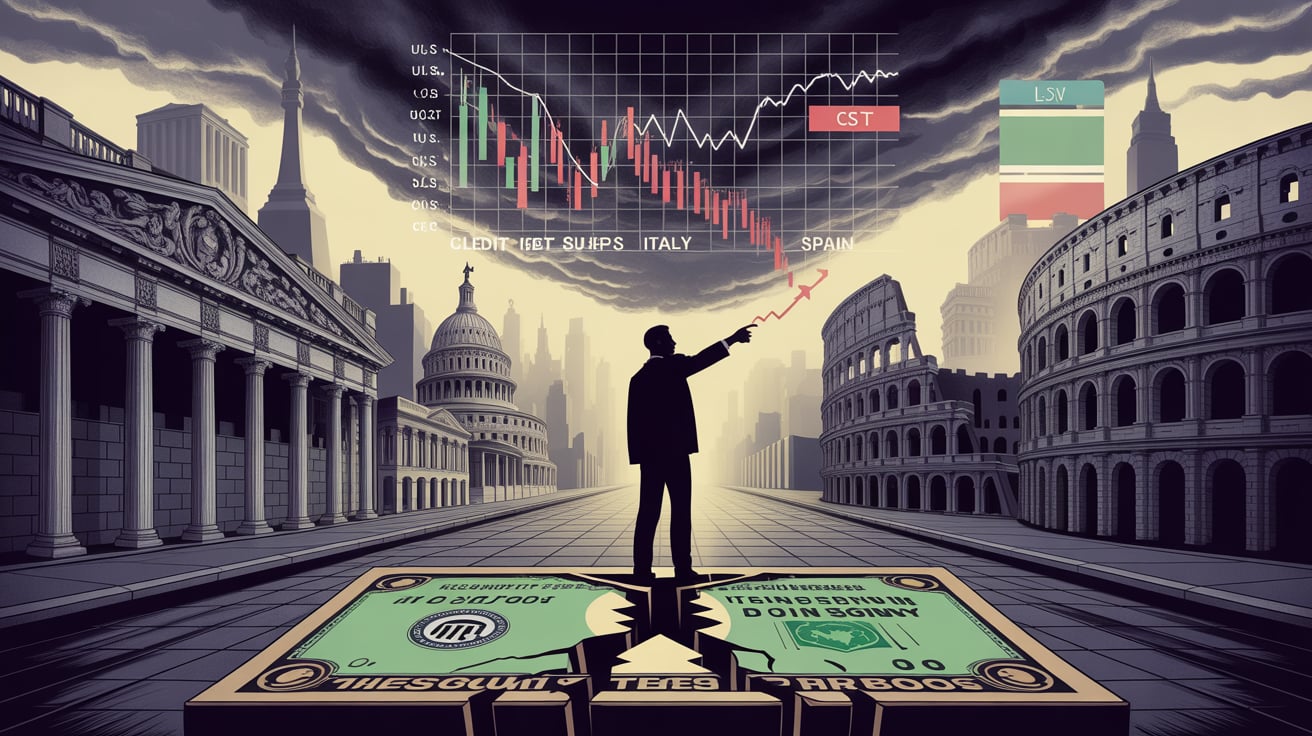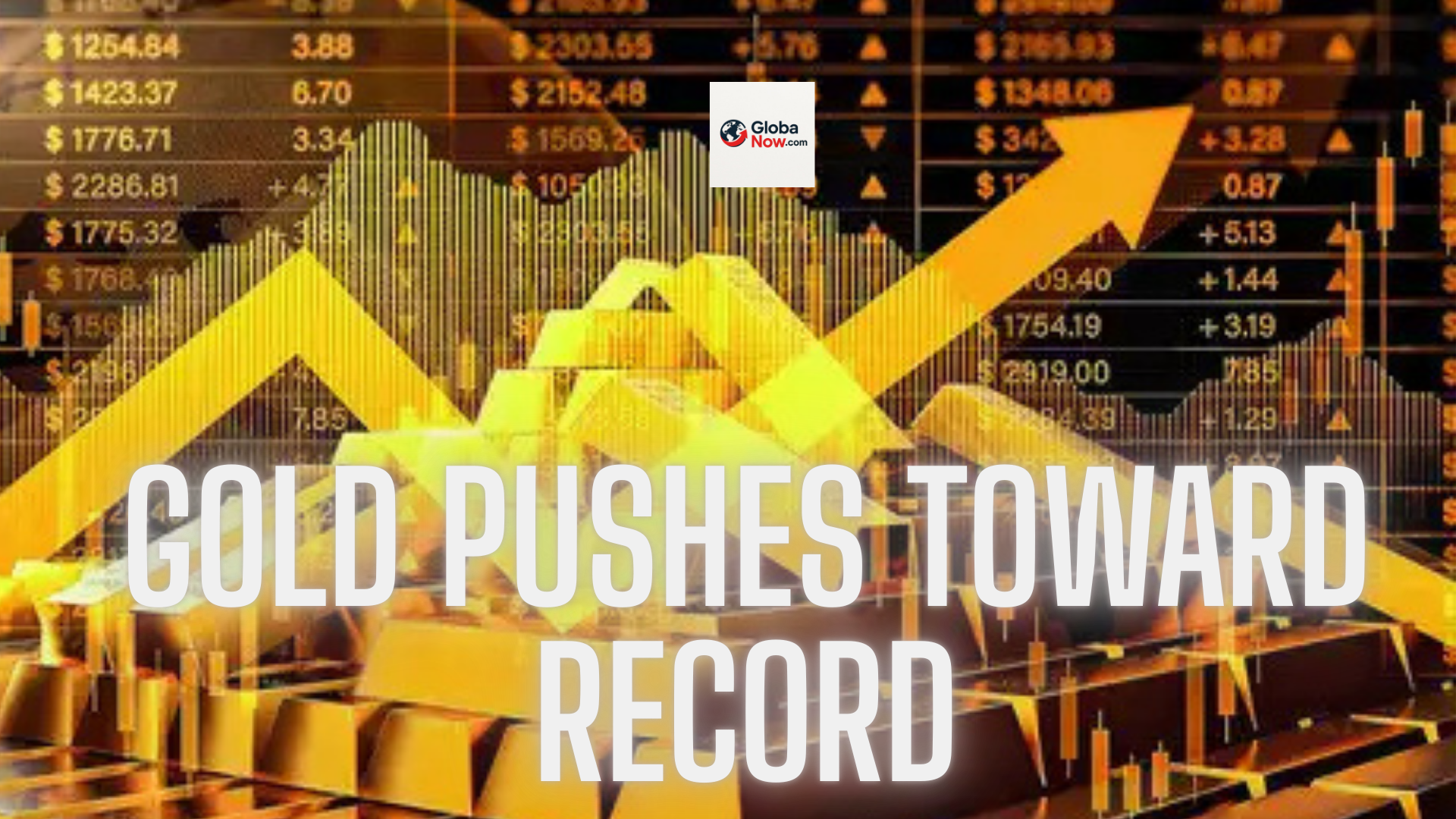In a striking critique of America’s fiscal outlook, billionaire investor and Citadel founder Ken Griffin issued a warning about the rising cost of insuring against a potential U.S. debt default. Speaking at the Forbes Iconoclast Summit on Thursday, Griffin described the current pricing of U.S. credit default swaps (CDS) as “unfathomable,” expressing disbelief that the world’s largest economy was being priced in financial markets as if it carried risks comparable to or exceeding some European nations with a history of fiscal fragility.

Griffin, a prominent voice in the world of finance, emphasized the irony and alarm in current CDS spreads. He said he never thought he would see the day when the U.S.—a country long viewed as the gold standard for creditworthiness—would carry a higher perceived risk of default than nations such as Spain, France, or even Italy.
“We’re seeing CDS levels for the United States that rival those of countries with a much more checkered fiscal past,” Griffin noted. “It’s truly astounding.”
Understanding Credit Default Swaps
Credit default swaps are financial instruments that function as a form of insurance against default. Investors buy CDS to hedge against the risk that a borrower—in this case, the U.S. government—might fail to meet its debt obligations. The cost of a CDS reflects market perceptions of default risk: the higher the cost, the greater the perceived risk.
According to data from S&P Global Market Intelligence, U.S. five-year CDS spreads stood at 48 basis points on Thursday. In contrast, Italy’s spreads were slightly higher at 50 basis points, while Spain and France stood at 32 and 35 basis points, respectively.
While these are small numerical differences, they carry significant implications. That the U.S.—with its unmatched economic scale and reserve currency status—trades near or above countries like Spain or France on this metric suggests a major shift in investor sentiment. And that shift, Griffin warned, is deeply concerning.
Liquidity and Market Distortions
Griffin did acknowledge that the CDS market isn’t always perfectly efficient. “There are liquidity issues in the CDS market that do distort pricing,” he said. Smaller trade volumes and the structure of the swaps market can lead to volatile pricing and occasional discrepancies.

However, Griffin was quick to caution that these issues alone don’t explain the magnitude of the current spreads. “Even after accounting for market inefficiencies, these levels are hard to justify,” he stated.
The cost of insuring against a U.S. default rising to these levels, Griffin argued, is more than just a market anomaly—it’s a reflection of deeper economic and political risks.
The Bigger Problem: U.S. Fiscal Irresponsibility
Beyond the trading dynamics of CDS, Griffin was especially critical of America’s underlying fiscal policy. He pointed to persistent and significant federal deficits—running at 6% to 7% of GDP—even during times of economic growth and full employment.
“Running such massive deficits when the economy is strong is the very definition of fiscal irresponsibility,” Griffin said.
Normally, economists expect governments to reduce deficits during periods of growth and low unemployment, reserving borrowing power for downturns or crises. Griffin suggested the U.S. government has done the opposite, steadily increasing its debt load without a credible plan for long-term sustainability.
This fiscal trajectory, he warned, could lead to a crisis of confidence among investors and global markets.
Debt Ceiling Drama and Political Paralysis
Griffin’s remarks come at a time of renewed anxiety about the U.S. debt ceiling. While Congress has so far avoided actual default through last-minute agreements and temporary extensions, repeated standoffs have eroded confidence in the U.S. government’s ability to manage its finances in a stable and predictable way.
Political polarization in Washington only adds to the uncertainty. Disagreements between Democrats and Republicans over tax policy, spending priorities, and the size of the federal government have repeatedly brought the country to the brink of default.
These political risks are increasingly being priced into financial instruments like CDS, especially when negotiations go down to the wire. Investors are no longer assuming that the U.S. will always honor its debt without drama.
Griffin warned that if these trends continue, the U.S. could gradually lose the unique privilege it enjoys as the issuer of the world’s reserve currency.
Erosion of Trust in the U.S. Dollar?
At the heart of Griffin’s warning is a broader concern: that the erosion of fiscal discipline could eventually undermine global trust in the U.S. dollar and American bonds.
For decades, the U.S. Treasury market has been considered the safest and most liquid in the world. This has allowed the U.S. to borrow cheaply and in large quantities. But that status depends on confidence—confidence in the stability of American institutions, the integrity of its political process, and the prudence of its fiscal policies.
If investors begin to seriously question whether the U.S. will always meet its obligations—or whether it can continue to do so without spiraling into a debt crisis—the ramifications would be profound. Borrowing costs would rise, the dollar could weaken, and the global financial system would face increased volatility.
Griffin’s Broader Message: Time to Get Serious
Griffin is not the only voice raising alarm bells about U.S. fiscal management, but his words carry significant weight. As the founder of Citadel, one of the world’s most successful hedge funds, he commands deep respect on Wall Street. His comments reflect growing unease within the financial sector about the sustainability of America’s economic path.

His message is clear: the time for complacency is over.
“We cannot continue running trillion-dollar deficits with no end in sight,” Griffin warned. “Sooner or later, the markets will impose discipline.”
He urged policymakers in Washington to engage in serious, bipartisan conversations about debt, spending, and long-term planning. Without such reforms, the U.S. risks a slow-motion erosion of its credibility and financial leadership.
Conclusion: A Cautionary Tale in the Making?
Ken Griffin’s remarks serve as a sharp reminder of the risks that come with ignoring fiscal discipline. While the U.S. is far from an actual default, the fact that markets are beginning to price such a possibility—even marginally—should be a wake-up call.
As debt levels rise and political dysfunction persists, America’s longstanding reputation as the safest borrower on the planet is showing signs of strain. The current CDS pricing is not just a number—it’s a signal. One that, according to Griffin, we ignore at our peril.
Globa Now will continue monitoring the situation as debate over fiscal policy, debt ceilings, and America’s economic future intensifies in the months ahead.
Conclusion
Ken Griffin’s stark warning about the rising cost of U.S. default insurance is more than just a comment on market anomalies—it’s a powerful critique of America’s fiscal trajectory. As the cost of insuring U.S. debt inches closer to that of countries with weaker financial reputations, it signals a troubling loss of investor confidence. Despite the technical factors that may distort credit default swap markets, Griffin’s core message is clear: the United States cannot continue on its current path of unchecked borrowing and political brinkmanship.
Without meaningful fiscal reforms and a more disciplined approach to budgeting, the U.S. risks long-term damage to its economic credibility. What was once unthinkable—markets questioning the full faith and credit of the U.S. government—is now a growing concern among global investors. As Griffin emphasized, this is not just about spreads and basis points; it’s about the stability of the global financial system and the future of the dollar as the world’s reserve currency. The warning signs are flashing—whether Washington is listening remains to be seen.




3 thoughts on “Citadel’s Ken Griffin Warns: Cost of U.S. Default Insurance Reaches Unthinkable Levels”